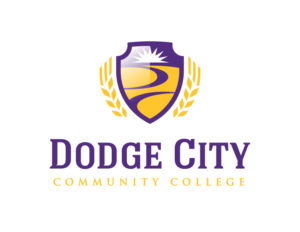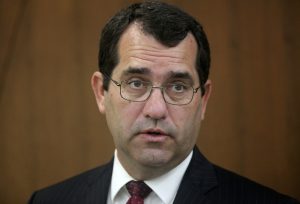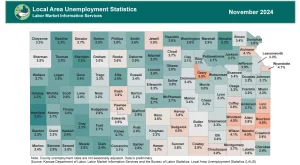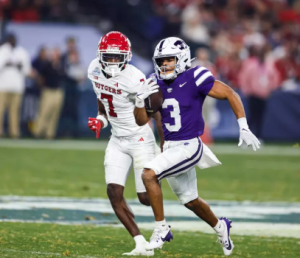Dodge City Community College Scholarship Fund Gets a Boost

(Courtesy of Dodge City Community College)
DODGE CITY, Kan. — At its regular monthly meeting on May 28th, the Dodge City Community College Board of Trustees voted to use an increase in incidental fees to help recruit more area fine arts students.
The 5-2 vote, with trustees Terry Malone and Dan Reichenborn dissenting, paves the way for a nearly quarter-million-dollar increase in available scholarship funds.
Acknowledging the wealth of instrumental and vocal talent in the local and service area high schools, DC3 is exploring the expansion of the band and choral music programs, as well as cheer and a possible drill team – aggressively recruiting from our area’s bevy of fine arts talent.
Additional scholarship funds will help entice talented fine arts students from the DC3 service area.
Chief Financial Officer for DC3, Dr. Glendon Forgey, proposed boosting the scholarship fund to $900,000 for the 2019-20 school year, increasing scholarship opportunities and making the college more competitive.
According to Forgey, the overall increase to athletic scholarships would be rather minimal. He said nearly $400,000 in scholarship funds will be set aside from public funds each year for the sole use of Ford County residents.
Trustees Terry Malone and Dan Reichenborn voted against the increase. Malone claimed that most of the money would be used to fund scholarships for out-of-state athletes – which he has historically opposed. Malone has on numerous occasions called for elimination of most, if not all DC3 athletic programs. Malone says that Ford County residents “subsidize educations for people who don’t pay a dime.”
Forgey noted that the scholarships awarded to athletes cover only academic expenses. Virtually all athletes live in the residence halls. Those charges are paid by the student – out-of-pocket or through federal Pell grants.
Board Chairman Gary Harshberger asked Forgey to run some hypothetical numbers, and according to Forgey’s figures, the cost to Ford County taxpayers would actually go up if athletics were eliminated.
At this time, revenue from the residence halls is adequate to cover the debt payments, but without athletes to fill the spaces, those payments would fall directly to the taxpayer – resulting in a 35 percent increase in mill levy.
Harshberger pointed out that athletes generate much-needed revenue to cover debt payments on the residence halls. Were the college to eliminate sports programs or otherwise restrict use of funds for athletic scholarships, the stream of students filling the buildings would most likely slow to a trickle.
“The athletes populate the dorms,” Harshberger told Malone. “If we did things your way and eliminated athletics, who would pay for the dorms?”
“You could have Ford County people,” Malone replied.
“So you’re going to mandate Ford County students who come to Dodge City Community College to live in the dorm?” Harshberger asked.
“Yes,” Malone responded. “Because they are already being paid for by Ford County taxpayers,” Malone said.
“You are simply espousing nonsense,” Harshberger replied.
Trustee Malone’s solution would be for the college to decree that every Ford County student live in the residence halls. Malone has proposed that schooling at DC3 be entirely free for Ford County students, but under his plan those students would be obligated to pay $6000 to $7000 per year to live in the residence halls.
Nolte said that compelling Ford County students to live in the dorms in order to attend DC3 may not be what local students or their families are looking for in their college search.
“One of the best parts of Dodge City Community College is our accessibility and affordability,” Nolte said. “I just wonder how parents would react to being forced to pay for housing when they live right here in town.”
The larger scholarship pool would also create more funds for athletic “support activities” like the cheer and dance teams, as well as rodeo – which is considered an extra-curricular activity by the NJCAA.
Forgey said that of the $900k total, about two-thirds will be allotted for athletic scholarships. According to Forgey, most of the increase went for other programs, and to fund book scholarships which have not been budgeted in the past – creating a perennial deficit situation in the bookstore which Forgey said is unsustainable.
He said at most other institutions, the bookstore operates in the black and typically contributes money back to the institution.
Nolte noted that the majority of DC3 workforce and trade students are on scholarship as well.
Forgey is proposing a transition from scholarships that pay specifically only for tuition and books, to a simple lump-sum scholarships that pays for any eligible college expenses – making outlays for the new process slightly higher than previous years.
Trustees and administrators also discussed retooling the college’s rules to allow scholarships to be cumulative.
Nolte said that DC3’s restrictions against “coupling” scholarships leads to students slipping away because they are able to combine scholarships at other institutions, lowering their overall cost and making those institutions more appealing than DC3 – even to Ford County students.
Currently, a student receiving an academic scholarship can’t couple that with an additional scholarship for band or choir – it’s just one or the other. So there is little incentive to draw those fine arts students to DC3.
“We have to be competitive,” Nolte said. “Our goal is to get as many students from here to come here. We’re losing students to other schools because they can use those performance scholarships coupled with academics.”









